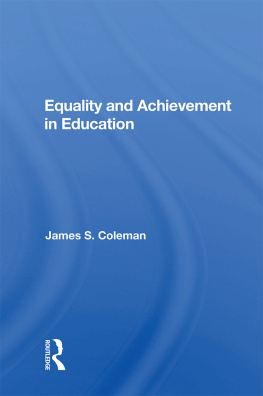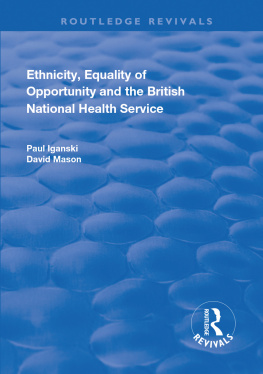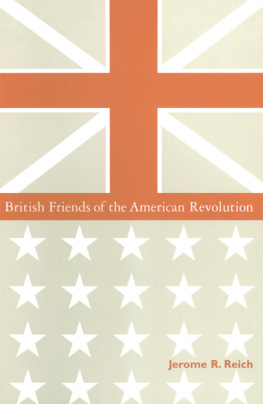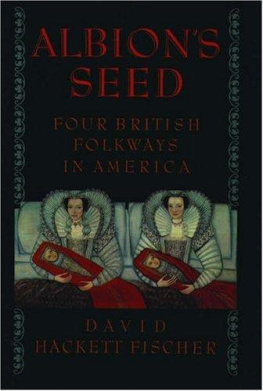Published by Louisiana State University Press
Copyright 2017 by Louisiana State University Press
All rights reserved
Manufactured in the United States of America
First printing
Designer: Barbara Neely Bourgoyne
Typeface: Ingeborg
Printer and binder: Maple Press (digital)
Library of Congress Cataloging-in-Publication Data are available at the Library of Congress. 978-0-8071-6744-1 (cloth : alk. paper) 978-0-8071-6745-8 (pdf) 978-0-8071-6746-5 (epub)
The paper in this book meets the guidelines for permanence and durability of the Committee on Production Guidelines for Book Longevity of the Council on Library Resources.

Equality is the life-blood of American society.
Frances and Teresa Pulszky, White, Red, Black, II:249 (1853)
[The United States] makes no invidious distinctions; there is no partialityno respect of persons. Its spirit and genius are those of perfect political and civil equality. It creates no dukes, marquises, earls, or lords; there are no aristocracy,no hereditary rights,no hereditary honours and privileges. The whole nation is politically a level mass, without any nobles or local magnates either to check or to head public opinion.
James Phillippo, The United States and Cuba, 57 (1857)
One sentence in the Declaration is worth repeating, not only annually, but daily:We hold these truths to be self-evident, that all men are created equal; that they are endowed by their Creator with certain inalienable rights; that amongst these are life, liberty, and the pursuit of happiness.
Archibald Prentice, A Tour in the United States, 6th ed., 111 (1848)
PREFACE
A ll authors have stories about how they came to write on certain subjects, interesting little tales of libraries, historical societies, treasures never before consulted, and oddities of discovery. I have mine. The genesis of this book, which I had never planned to write, came from strange experiences and directions, and I shall take a few pages to narrate them.
As my abiding interest for over forty years of research and writing has been political economy and sectional antagonism in the two decades before the Civil War, I decided to explore the possibilities of agricultural differences being the foundation for antebellum sectional hostility. That interest led to my book The British Gentry, the Southern Planter, and the Northern Family Farmer: Agriculture and Sectional Antagonism in North America (Louisiana State University Press, 2015). The subject took me to times far earlier than 1840 and to Great Britain in search of understanding the evolution of American agricultural development. Rather late in the research, after I had actually visited all the repositories necessary to make conclusions, I remembered that foreign travelers, mainly British, had visited the United States in the nineteenth century and I probably should consult them. Quite frankly, this was almost a research methodology afterthought. My initial skepticism about the use of travel accounts was based on my earlier impression that these visitors were people obsessed with the practice of American democracy. Moreover, historical research has been governed by the description of the United States by one person in particular: Alexis de Tocqueville. Tocquevilles Democracy in America has become a standard text and a standard topic for explication, and most of his analysis had little to do with agriculture (but, surprisingly, more than I originally thought). I soon found out that there were loads of interesting commentaries on American agriculture by these travelers, and the sources became fundamental to my work. As is my custom, I took the occasion to peruse the works for more than agricultureand, to be honest, more than the usual grumping about mass politicsand found there a deep and abiding discussion of equality, what it meant, and how equality shaped American livesand for some, how it was denied. That was a starting point for a reassessment of how historians have presented the nineteenth-century American idea of equality and its operation, and especially its comparison to inequalitythe comparison, often ignored by historians, being supplied by the same British travelers.
Several personal incidents, but one in particular, convinced me that an article or short book on the subject was not only useful for historical understanding of the American past but had a poignant relevance to modern debates in the twenty-first century. In 2009 I was part of a roughly twenty- member committee assigned to winnow down candidates for the position of Dean of Arts and Sciences at Oklahoma State University. Interviews were arranged, and several candidates were brought to campus. One was a political scientist. So the committee sat at a long oval table and asked the usual questions, and the discussion wandered off onto various topics. At one point, the applicant exclaimed, for some reason I cannot remember, that No one believes in equality any more in academia, except for historians. The eyes turned to me, and I blurted out something to the effect, It comes from the heart, thumping my chest with my fist. A little laughter ensued, but I went no further in explanation. I was dumbfounded by the assertion. I had just read ample primary sources on the battle between equality and inequality between nineteenth-century Americans and Britishers and had written a one-hundred-page monster article that required considerable revision. All the stories just crashed around in my head, and I knew if I started talking I would keep talking for the next five or six days. But that day I did not have my wits about me. When the mind is filled with too much detail, the tongue gets tied in knots.
Yet the candidates assertion has not been an isolated incident. Statements about the uselessness and folly of equality have reverberated in endless forums in the late twentieth century and the early twenty-first. It is time to remind ourselves of not just a heritage seemingly forgotten, but the realities that equality and inequality produced in the nineteenth centuryand why all of western Europe finally shed its hallucinations about the glories of inequality and opted for the morally correct and realistic vistas of equality in the mid- and late twentieth century.
The reason that this debate over equality and inequality is being presented in a book formatbesides the fact that no historian has even covered the subject beforeand not in article form derives from an unwelcome realization about the tendencies within the academic historical community. Certain types of investigations and conclusions are welcome, others are not. The writing on the American colonies and states prior to 1950 had its celebratory quality, and the parts that were not laudatorysuch as slavery and conflicts with Native Americanswere seen as temporary aberrations of the main American patterns of equality, democracy, and liberty. After 1960, the aberrations started to become the dominant themes of American history, and equality, democracy, and liberty were seen as the actual aberrations. Slavery, Jim Crow, and continued racism has been a mainstay of the American experience; the treatment of Native Americans has been revealed to have been one of almost unrelieved gory brutality. The inequality of women has been a lasting tale, and immigrants from countries outside of western Europe have suffered discrimination and limited opportunities. A work, such as mine, rediscovering equality in the American past is not welcome. To explain how equality operated in this mass of inequality takes far more time and pages than journal editors are willing to permit. Just to presage matters somewhat, the answer lies in the difference between equality and diversity; equality within a homogeneous ethnic group was clearly understandable for people two and three hundred years ago, and it is sometimes difficult for modern Americans to remember that the doctrine of inequality was applied to people of the same ethnic group who resided in one nation. Equality across ethnic groups, a partial definition of diversity, was not recognized by previous generations and is clearly a late twentieth-century concept.






 LOUISIANA STATE UNIVERSITY PRESS BATON ROUGE
LOUISIANA STATE UNIVERSITY PRESS BATON ROUGE
